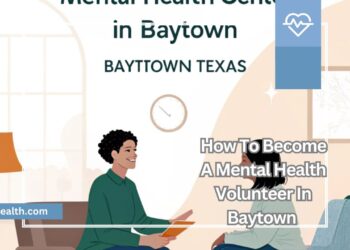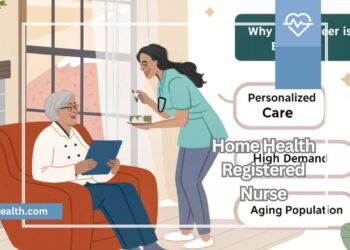Growing up in a small town like Grand Marais, Minnesota, is a unique experience—one filled with breathtaking natural beauty, a strong sense of community, and a peaceful environment. But as someone who spent their childhood and teenage years here, I can tell you firsthand that access to healthcare, mental health resources, and social support for young people is a real challenge.
While Grand Marais offers a safe and serene lifestyle, its remote location and limited healthcare infrastructure create significant barriers for youth seeking medical and mental health care. Over the years, I’ve seen many young people, including myself, struggle with accessing basic health services. This article will explore the health needs of youth in Grand Marais from both a factual and personal standpoint, highlighting physical health challenges, mental health struggles, substance use concerns, and the need for stronger community support.
Growing Up in Grand Marais – A Personal Experience!
Growing up in Grand Marais, I quickly realized how difficult accessing healthcare could be. A soccer injury forced my family to drive over 100 miles to Duluth for treatment—an expensive and time-consuming trip many of my friends also had to make for routine care like dental work or eye exams.
Mental health support was even scarcer; a close friend struggled with anxiety but had no local therapists to turn to. Stigma and limited resources made seeking help difficult. Now, living in a city, I see how under-resourced Grand Marais truly is for youth health services, highlighting the urgent need for better access to care.
The Unique Challenges of Rural Youth Health:
Grand Marais offers natural beauty but struggles with healthcare access. While outdoor activities boost wellness, remote locations limit medical services. Youth face difficulties getting timely care, which affects long-term health. Balancing rural benefits with healthcare gaps remains a key challenge for families and policymakers alike.
Geographic Isolation and Healthcare Access:
Traveling for specialized care is common, delaying treatments. Emergency services are slower, and routine check-ups become harder. Remote living means fewer nearby clinics, forcing families to prioritize urgent over preventive care. Improved telehealth and mobile units could help bridge this gap.
Socioeconomic Factors Affecting Health:
Lower incomes and job scarcity limit healthcare spending. Many families delay doctor visits due to costs, worsening, and untreated conditions. Transportation barriers add to financial strain. Addressing affordability and expanding Medicaid access could ease these burdens for Grand Marais youth.
Physical Health Needs – Limited Access to Basic and Specialized Care!
Lack of Pediatric Specialists:
One of the biggest challenges for youth in Grand Marais is access to specialized healthcare. While the town has a few general practitioners, it lacks pediatricians, orthodontists, dermatologists, and other specialists. For anything beyond a basic check-up, families must travel long distances, often to Duluth or even the Twin Cities. This makes early diagnosis and treatment of chronic conditions difficult.
Preventive Healthcare is Hard to Maintain:
Routine healthcare like vaccinations, annual check-ups, and dental cleanings is vital for young people, but many families skip them due to distance, cost, or lack of available appointments. I remember some of my classmates didn’t get their braces until late high school because there simply wasn’t an orthodontist nearby.
Limited Physical Activity Options in Winter:
Grand Marais offers an outdoor paradise in summer, but winter presents challenges. While some kids take advantage of cross-country skiing or snowshoeing, not everyone has the gear or interest. Indoor sports facilities are limited, and school sports programs, though valuable, aren’t enough to keep all youth engaged in physical activity year-round. The result? A higher risk of childhood obesity and other health issues due to inactivity in colder months.
Also read: List Of 50 Words Associated With Mental Health – Improve Awareness & Break Stigma!
Mental Health – The Silent Crisis!
The Struggle to Find Mental Health Support:
Mental health issues like anxiety, depression, and stress are just as common in Grand Marais as they are anywhere else. But the difference is access to care. When I was in high school, I remember students whispering about how they or their siblings needed therapy but couldn’t find anyone nearby. The closest mental health specialists were hours away, and virtual therapy wasn’t widely accepted back then.
Today, telehealth options have improved, but many families lack the resources or knowledge to use them effectively. Additionally, some young people are hesitant to seek help due to stigma. Mental health struggles are often seen as personal weaknesses in small, tight-knit communities where people don’t want to appear “different.”
Social Isolation and Rural Loneliness:
While Grand Marais offers peace and beauty, it can also feel isolating, especially for teenagers. The town is small, and many young people long for more social connections and activities. During winter, darkness and extreme cold make it worse, leading to seasonal depression and increased feelings of loneliness.
The School’s Role in Mental Health:
Schools play a crucial role in youth mental well-being, but the counseling resources are limited. Many students don’t feel comfortable talking about their struggles because they fear judgment or lack a safe space to express themselves. More funding for school-based mental health programs could make a significant difference.
Substance Use – A Growing Concern in Rural Areas!
Early Exposure to Alcohol and Drugs:
In small towns like Grand Marais, boredom and lack of recreational activities often lead youth toward early experimentation with alcohol, tobacco, and other substances. Some studies show that rural youth are at a higher risk of substance abuse than their urban counterparts.
I knew students who started drinking as early as 14 or 15. Some of them were just looking for ways to pass the time, while others used substances as a coping mechanism for stress or mental health struggles.
Lack of Prevention Programs:
There aren’t enough substance use prevention programs targeted at youth in Grand Marais. Schools do their best to educate students, but without strong community involvement and accessible addiction counseling, many young people fall through the cracks.
Also read: Logan Mingo Area Mental Health – Top Clinics & Crisis Support!
Innovative Solutions to Improve Youth Health:
Addressing the health needs of Grand Marais youth requires creative, community-driven approaches. By combining technology, mobile services, and local collaboration, the town can overcome geographic and financial barriers.
These solutions must be sustainable, accessible, and tailored to the unique needs of rural youth to ensure long-term well-being. Investing in these strategies today will create a healthier future for the next generation.
Expanding Telehealth Services:
Telehealth offers a lifeline for families in remote areas, connecting them to doctors without long travel. Virtual consultations can cover mental health, chronic conditions, and preventive care, reducing missed appointments. Schools and community centers could host telehealth stations, making healthcare more convenient. With proper internet access, this solution could revolutionize rural youth healthcare in Grand Marais.
Mobile Health Clinics and Outreach Programs:
Mobile clinics bring vaccinations, dental care, and screenings directly to neighborhoods and schools. These programs eliminate transportation hurdles, ensuring no child misses essential care. Seasonal health fairs and pop-up clinics could address urgent needs while educating families. By making healthcare mobile, Grand Marais can reach underserved youth efficiently and cost-effectively.
Community Partnerships for Better Health:
Strong alliances between hospitals, schools, nonprofits, and businesses can fund wellness initiatives. Joint efforts might include mental health workshops, fitness programs, or subsidized care for low-income families. Shared resources maximize impact, creating a safety net for youth. A united community approach ensures sustainable health improvements for Grand Marais’ next generation.
Substance Abuse Prevention and Education:
Addressing Drug and Alcohol Use:
Substance abuse is a concern in many communities, including Grand Marais. Prevention programs that educate youth about the risks of drugs, alcohol, and vaping are essential. Schools, community organizations, and healthcare providers can work together to offer resources and support.
Support for At-Risk Youth:
Programs that provide mentorship, after-school activities, and positive role models can help prevent substance abuse by giving youth healthy alternatives and coping strategies.
Physical Activity and Nutrition:
Encouraging an Active Lifestyle:
Outdoor recreation opportunities in Grand Marais, such as hiking, skiing, and water sports, promote physical activity. However, not all youth have access to structured sports programs. Expanding youth sports leagues and recreational activities can encourage an active lifestyle.
Nutrition and Food Security:
Healthy eating is essential for physical and mental development. While Grand Marais has access to fresh local foods, some families may face financial barriers in accessing nutritious meals. School meal programs and community food initiatives can help address food insecurity.
Also read: Mental Health Disorders Are – Signs You Shouldn’t Ignore!
Sexual Health Education and Resources:
Comprehensive Education:
Providing youth with accurate, age-appropriate information about sexual health, relationships, and consent is crucial. Schools and community organizations can play a role in ensuring young people have access to reliable information and resources.
Access to Confidential Healthcare Services:
Teens should have access to confidential reproductive health services, including birth control, STI testing, and counseling. Ensuring that these services are available locally or through telehealth can help youth make informed decisions about their health.
Community and Family Support:
Role of Families in Youth Health:
Parental involvement is key to promoting healthy habits and emotional well-being in young people. Workshops, support groups, and resources for parents can help families navigate health challenges together.
Strengthening Community Resources:
Local organizations, schools, and healthcare providers must work together to address the diverse needs of youth in Grand Marais. Expanding outreach programs, funding community health initiatives, and increasing awareness of available services can improve overall youth health outcomes.
Building a Healthier Future – Solutions for Grand Marais Youth!
- Expanding Telehealth Services: More families need access to virtual healthcare, especially for mental health services. Schools and local organizations should promote teletherapy and online doctor consultations as practical solutions.
- Increasing Mental Health Awareness and Support: Better mental health education is needed to reduce stigma. Schools can introduce peer support groups and wellness programs to encourage open conversations and emotional well-being.
- Developing More Indoor Recreational Spaces: To combat winter inactivity, Grand Marais should invest in indoor sports facilities, gyms, and youth centers to keep young people engaged year-round.
- Enhancing Preventive Healthcare Access: A mobile healthcare unit that visits Grand Marais monthly could provide vaccinations, screenings, and routine check-ups, ensuring better preventive care.
- Strengthening Substance Use Prevention Programs: Community-driven education, mentorship, and after-school programs can help youth make healthier choices and reduce the risk of substance abuse.
FAQs:
What are the biggest healthcare challenges for youth in Grand Marais?
The biggest challenges include limited access to specialized care, long travel distances for medical appointments, a lack of mental health services, and few preventive healthcare options like routine check-ups and vaccinations. Rural isolation also makes it harder for young people to access consistent and timely healthcare.
Why is mental health support important for youth in Grand Marais?
Many young people in Grand Marais struggle with anxiety, depression, and social isolation, but limited local therapists and counselors make it difficult to get help. Without proper mental health resources, these challenges can worsen, affecting their academic performance, relationships, and overall well-being.
How can telehealth improve youth healthcare access in Grand Marais?
Telehealth can provide virtual doctor visits, mental health counseling, and specialist consultations without requiring long-distance travel. Expanding telehealth services would help families access pediatric care, therapy, and preventive screenings more conveniently.
What can be done to promote physical activity among Grand Marais youth?
Developing indoor recreational spaces, sports programs, and youth centers can encourage physical activity, especially during the winter. Schools and community organizations can also introduce structured fitness programs to keep youth active and healthy year-round.
How can the community help prevent substance abuse among youth?
Communities can reduce youth substance abuse by offering education programs, mentorship opportunities, and after-school activities that provide positive alternatives. Increasing access to counseling and support groups can also help at-risk youth make healthier choices.
Conclusion:
Addressing the health needs of youth in Grand Marais requires a multi-faceted approach that tackles geographic, financial, and social barriers. Expanding telehealth services, investing in mental health programs, and creating more recreational spaces can significantly improve the well-being of young people in this rural community.
Additionally, substance abuse prevention and increased access to preventive healthcare must be prioritized to ensure a healthier future. By working together as a community, Grand Marais can provide its youth with the support and resources they need to thrive.
Related post:











